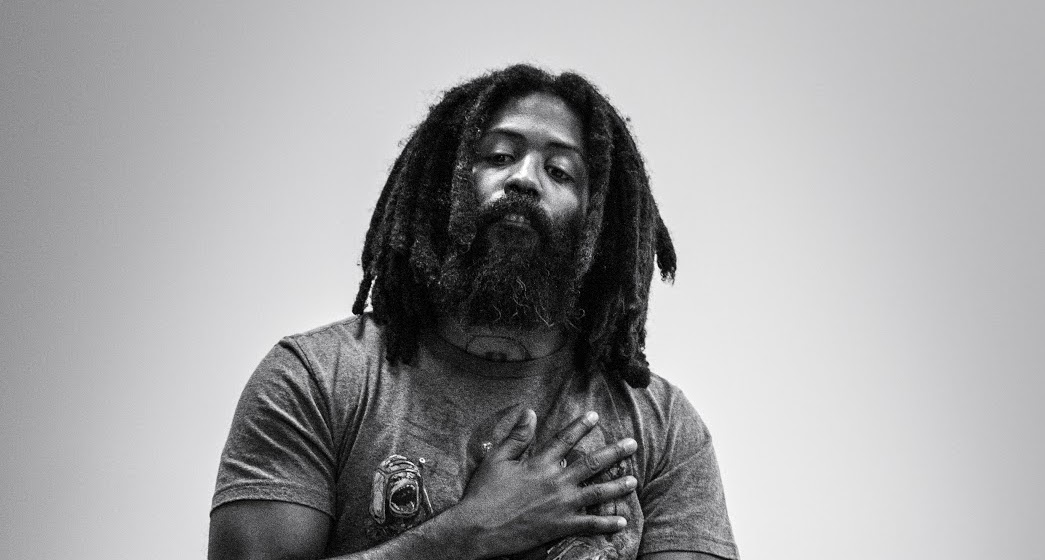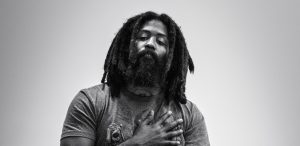
Murs discusses his early touring experiences and rap music’s international importance
Described as “the consummate ‘rapper’s rapper’,” Murs is an artist whose stripes have been hard earned. He released his debut album over twenty years ago and as he shared with us in the following interview, made a name for himself internationally with hard touring and investment in his craft. Not every rapper aims to bring about positive change or act in such a way that they serve as a role model for hip-hop fans worldwide. Murs however manages to do so without remotely compromising his artistic vision. We’re excited to welcome Murs to Band on the Wall on 15th September and ahead of the show, we’re thrilled to discuss his latest record, touring experiences and thoughts on rap music’s international impact.
You worked with producer Michael “Seven” Summers on your latest record, A Strange Journey Into the Unimaginable. Can you describe your working relationship with Michael and why, having worked with 9th Wonder and a variety of other producers during your career, he was the right fit for this project?
Murs: ‘My relationship with Michael is the way I’ve worked with most producers over the years. I like to let the music lead. Let the producer produce. It’s something I learned with 9th Wonder. Trust your producer to lead the project and bring the best performance out of you. It also helps when you’re working with accomplished producers with a proven track record. But now that I’ve worked with veterans like Ski Beatz, 9th Wonder, and most recently Seven, I’m also able to tell which up-and-coming producers are the right fit for me.’
Throughout the new record, you explore personal subject matter candidly. Has that always come naturally to you, or have you had to mature into the rapper who’s able to commit those thoughts to rhyme? Furthermore, do you feel understanding of mental health is improving amongst rap artists and fans?
Murs: ‘I began my journey as an MC freestyling, improv. rapping, or stream of conscious flowing. Whatever you want to call it. From a young age, I was saying exactly what was on my mind. When I linked up with the Mystik Journeymen and the Grouch. They inspired me to become a better songwriter. To keep the same honesty but focus on specific themes and concepts. I had to learn to convey a message and emotion in the form of a structured song. I eventually learned to slow my mind a bit. To process and refine the words before spitting them out. Now I’m able to write swiftly, honestly and precisely. Something as intimate as the first song. Took me no more than hour to write if that.
As far as mental health is concerned I feel we still have a long way to go. I have fans come up to me often and tell me how my music has helped them through tough times. But I’d love to hear how my music inspired them to go seek professional help as well. Rappers, personal friends, and parents may help on you on your path to wellness. but they/we are still not mental health professionals. I hear more rappers now mentioning battling depression. And I believe that type of vulnerability is a huge first step. So, I am very proud of hip hop and looking forward to taking the next step towards a happier and healthier hip hop community.’
In your recent investigation on underground rap for HipHopDX, you spoke about the inadvertent marketing power of the parental advisory sticker. For those too young to remember its introduction, can you elaborate a little on how rap changed when it came into use, and what that sticker meant to yourself and your peers, as young rap fans consuming music at the time?
Murs: ‘I feel the “sticker” was originally intended to punish and discourage but it in fact it became a badge of honor. It not only encouraged MC’s to push the envelope even more, It also created a certain mystique. That drew the younger generation in. Parents hate it? We love it. It’s hard obtain? We want it even more. Maybe, had they ignored it all, Gangster rap would’ve died on the vine. Ha!’
What are your thoughts on 88rising and the international attention artists from East Asia have received via the platform? Do you find that music can still resonate deeply with you when its lyrics are a language other than your own?
Murs: ‘I don’t fully understand the words or the intent behind what 88rising is doing. But I thoroughly enjoy it. Having been touring worldwide since 1996, I am used to rap in different languages and I understand first hand how music can still resonate deeply despite the language barrier. My first headlining show was in Japan, for one-thousand kids who may or may not have understood what I was saying, but were in tune with my movement way before fans in America.
I also came up touring internationally the hardcore way. Sleeping on floors and making friends with local artists who were kind enough to collaborate, let us sleep over and be our tour guides/translators from time to time. Groups like the Zombi Squad in the Netherlands, Krewcial in Belgium, and DJ Quietstorm in Japan. We became fans of each other. I’m a huge fan of international hip hop. And while streaming doesn’t pay as much as most artist would like, I really love being able easily to catch up on rap tunes from around the globe. It was soooo hard for me trying to find Grime in the early 2000’s. I’d hear artists like Durrty Goodz and [end up] scouring the internet and the streets of London. I remember taking the train from a home we were renting in Billericay to Southend Victoria because I heard that there was an underground Grime function. I found nothing of course. But I tell that story to say that no matter where I am in the world, I try to get out and find the rawest or purest form of hip hop. I believe in some ways hip hop is a language unto itself. Silly to some. But I believe it.’
You’ve been in hip-hop long enough to have witnessed numerous scene changes, trends and micro-revolutions. What has been the development that has surprised you most over the years?
Murs: ‘Hi top fades coming back is something that I’d never thought I’d see. That and gangster tattoos on civilians.’
What’s next on your “to do” list, developmentally speaking? Would you like to learn any languages or instruments, try your hand at any new disciplines or see any new places?
Murs: ‘My wife is Brazilian, so I’m slowly learning Portuguese via Rosetta Stone, late nights after the baby is asleep. [I’d like to] Write a book, write a play, learn the banjo just to learn to sing “Rainbow Connection” by Kermit the Frog, learn to sing, hike Everest at 50, become a better b-boy (breakdancer), quit sugar, and become a better parent and partner.’







